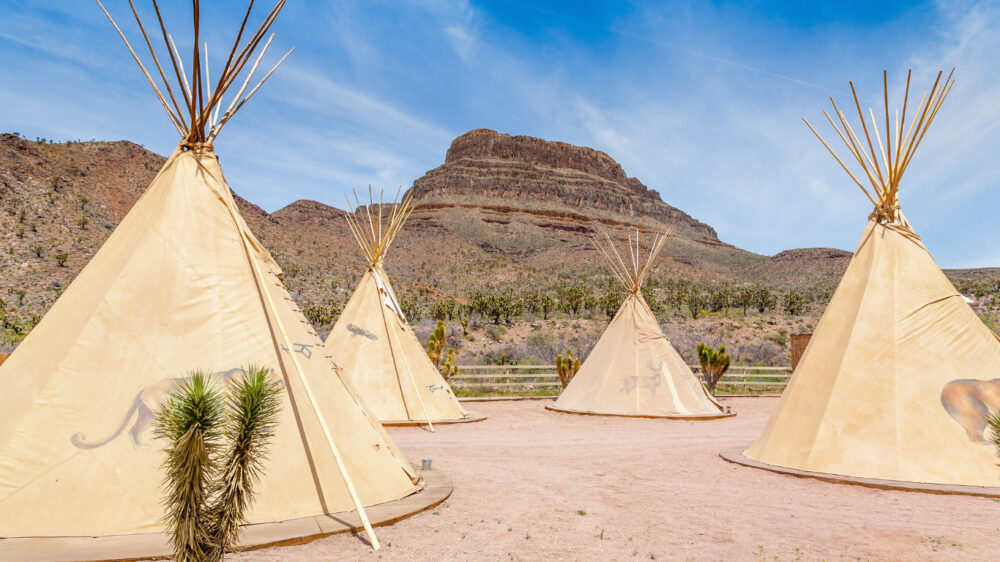

Native American Indian Housing Programs, Grants, and Policies
Challenges in Tribal Housing
Several challenges exist to Native American housing, which include substandard infrastructure, lack of space, and affordability challenges. These all impact the wellbeing of both individuals and entire communities, and the significance of these challenges requires effective legal solutions.
The Role of Law Firms in Native American Indian Housing
Our team can assist tribes in securing funding, navigating regulatory processes, writing tribal laws and policies, and enforcing their housing rights. Additionally, our attorneys provide expertise in contract drafting and negotiation, ensuring that housing projects meet the specific needs and goals of Native American tribes. Finally, we can offer compliance and regulatory assistance and help tribes navigate the complex web of housing laws and address any legal challenges that may arise.
A common issue that tribes face is finding the balance between assisting tribal members to secure housing, including homeownership, and retaining housing resources for the tribe. Many tribes want to help their members own their own home, including homes on the reservation or other trust properties, but once the tribal member owns their home, that home may be removed from the tribe’s housing stock. Under private ownership, it could even be sold to non-Indian buyers.
Our Indian Law team can help the tribe with a legal review of its policies and practices to find the right balance of helping members achieve the goal of homeownership without losing housing stock.

Talk to Our Indian Law Attorneys About Your Tribe’s Legal Needs at No Cost
Programs for Native American Indian Housing
Several programs and grants are available for housing in tribal communities. The Native American Housing Assistance and Self-Determination Act (NAHASDA) administered by the Department of Housing and Urban Development provides funding to tribes for the development and maintenance of affordable housing. It empowers tribal governments to establish their own housing programs, ensuring self-determination and community-specific solutions. Under NAHASDA, assistance is distributed through two main programs:
1. Indian Housing Block Grants
These grants can be utilized for new construction, rehabilitation, and rental assistance programs, among other uses. IHBG funding plays a crucial role in supporting affordable housing initiatives within Native American Indian communities.
2. Section 184 Indian Home Loan Guarantee Program
The Section 184 Indian Home Loan Guarantee Program provides mortgage guarantees for Native American Indian families and individuals who wish to
purchase, build, or renovate homes on tribal lands. This is a vital program to secure lending on tribal lands, which traditional lenders often avoid because of the difficulty of enforcing loan terms in the event of foreclosure.
3. A third program, the Home Improvement Program, administered by the BIA, is specifically designed to help people with substandard housing. It aids people with extreme housing needs—either unsafe housing or no housing at all. These funds are distributed through Pub. L. 93-638 Self-Determination contracts and Self-Governance compacts.
Our team of experienced Indian Law attorneys can help with matters like:
- Tribal Governance and Regulations
- Treaty Rights for Indian Tribes
- Natural Resource Management for Tribal Lands
- Cannabis and Hemp Production and Sales for Indian Tribes
- Environmental Protection and Cleanup on Tribal Lands to Protect Sacred Sites
- Resolving Tribal Enrollment and Disenrollment Disputes
- Tribal Housing Programs and Funding
- Tribal Healthcare and Strengthening Government Partnerships
- Doing Business in Indian Country
- Indian Child Welfare Protections
- Indian Gaming Compact Lawyers
- Breach of Trust for Tribes in the US Court of Federal Claims
- Federal Funding Opportunities for Tribes
- Tribal Fee to Trust Land Acquisition for Casino Gaming
- Gaining Federal Recognition for Native American Indian Tribes
- Misuse of Railway Easements on Indian Tribal Lands
- Federal Takings Claims on Native American Indian Reservations
- Land Allotments
- Wind Energy Ventures
- Native American Tribes and Employment Law
Content Reviewed by Jeffrey Nelson – Indian Law

Jeffrey Nelson leads the Firm’s Indian Law Group. He’s spent over 20 years of experience working in Washington, DC on Indian law and litigation matters, including as a Senior Attorney at the National Indian Gaming Commission and as an Assistant Solicitor at the Department of the Interior. Jeff now represents tribes across the country on Indian gaming and tribal governance matters. He also serves as the Assistant Attorney General for the United Keetoowah Band of Cherokee Indians in Oklahoma. Jeff earned his law degree at the University of Michigan Law School in 1997 and an LL.M. in Advocacy from Georgetown University Law Center in 1999.
This page was last updated:


Contact Us Now

As an experienced leader in these types of lawsuits, we were confident the firm would have the expertise. However, what surprised us most was the high level of excellent customer service from the firm’s staff!
Pat R.
I can’t recommend this firm enough. They have an outstanding team that truly care for their clients…I have been awarded a fair six figure settlement.
Nate M.
When I say “they went to bat” for me…this Law Firm literally did just that. They persevered to bring the hard-nosed Manufacturer to settle and provide me some recompense for everything I had to endure which led to this suit.
Me’Chelle